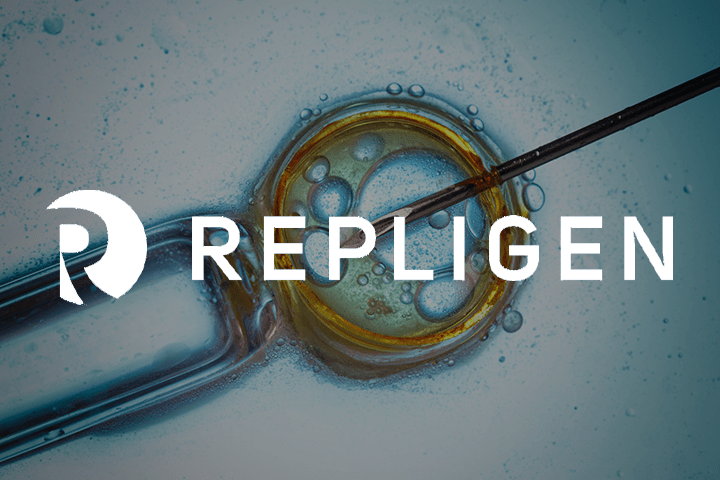How do you guarantee that products and services meet your customers' expectations? Successfully combining this with minimal internal costs is a challenge for most organizations. With a good quality management system, the conditions for success are optimized.
Regulatory compliance is critical to ensuring the safety and effectiveness of medical devices and equipment. CANEA can, for example, help you with:
- Environmental analysis to define relevant regulations and how they affect the business.
- Gap analyzes against relevant regulations and standards, with a detailed action plan.
- Regulatory strategy development and advisory support.
- Preparation for audits and external reviews – we can help you prepare for regular audits and inspections by regulatory authorities and third parties.
- Documentation and records management – consultants can help establish robust document management and records management systems, which are critical to maintaining compliance by ensuring traceability and transparency.
- Risk management – CANEA helps clients develop and implement risk management processes, which is an important component of regulatory requirements, such as ISO 14971.
- Change management – we support you in managing changes to products or processes to ensure that any changes are still in compliance with regulatory standards.
The world around us is changing at an increasingly rapid pace, which means that businesses must verify and update their strategy on a continuous basis. In addition, the strategy must be concrete and measurable to have a real effect. It requires a clear connection between the strategy and the operational activities. With our systematic approach and process management, the strategy becomes realistic, connected and anchored in achievable results.
According to research published in the Harvard Business Review, only 10% of all organizations manage to successfully implement their strategy. We help our customers get closer to that top ten percent if not achieving it.
Well-defined processes are a powerful tool for creating customer focus, identifying important handovers, and highlighting where in the organization value is created.
All companies and organizations work in processes - whether you know it or not. Process is just another word for the way you work or "how you do what you do".
Processes are about understanding a flow – a value chain – through a business and optimizing the entire flow, rather than sub-optimizing individual sub-processes or functions.
Developing processes consists of two main parts – process mapping and process improvement.
Audits are a systematic way of finding out whether the operations are in line with the organization's requirements and guidelines. With the help of interviews and observations, random samples are carried out which are then compared with, for example, the own operating system or a standard, such as ISO 9001 or ISO 14001. Audits have a clear improvement focus and the goal is to present the most essential improvement areas for the management team to make critical decisions.
The purpose of digitization is to create value, regardless of whether it is about improving sustainability, reducing resource consumption, increasing delivery capacity, and raising the quality of products and services. Digitization can also ease stress on your organization by minimizing duplication of work and reducing the risk of errors. Seen from a quality perspective, digitization of processes and workflows can minimize the number of handovers of cases, which shortens processing times and simplifies work. In the end, digitization leads to greater value being created for the customer and higher profitability can be achieved in the business.
Process validation in the medical device industry is a critical component in ensuring the safety, efficacy, and compliance of medical devices. It is a systematic and documented method that confirms that a manufacturing process consistently produces a product that meets its predetermined specifications and quality requirements.
Process validation typically involves the following phases:
- Process Design – during this phase, companies define the critical process parameters, quality attributes and control strategies. This is based on scientific understanding and risk analysis.
- Process Qualification – this phase involves testing and documenting that the process is capable of consistently producing products within specified requirements. It usually includes installation test (IQ), operational test (OQ) and performance test (PQ).
- IQ – ensures equipment is properly installed.
- OQ – shows that equipment and processes are operating as intended under defined conditions.
- PQ – proves that the process consistently produces products that meet the quality standards.
- Continuous process verification – once a process is validated, continuous monitoring and verification is required to ensure that it continues to be in control. This includes regular sampling, testing and data analysis to confirm that the process is still meeting specifications.
CANEA supports customers in the medtech industry with the above from start to finish.
Today, many organizations have a strong focus on systematic risk and crisis management in many areas of operation. This is because the demands on project management, work environment, information security, quality management and environmental work have become increasingly higher. But, let's be honest – it's impossible to predict or eliminate all conceivable risks and crises. What organizations can do, however, is to be well prepared and act in the right way when an event occurs. Why wait until a fire is fully developed, before extinguishing work begins?
Many companies feel that too much time in the business is spent "putting out fires". Therefore, a systematic working method for root cause analysis is needed, to work with effective corrective measures.
8D is a problem-solving methodology for product and process improvement. The 8D methodology aims to effectively manage and learn from internal and external complaints.
8D is used in several industries such as vehicles, medical technology, aviation, pharmaceuticals, etc. The methodology is particularly suitable for investigating root causes and implementing corrective and preventive actions (CAPA).
Supply chain management (SCM) is about planning, designing, implementing, and controlling the flow of goods, services, information and resources from origin to user. The primary goal of supply chain management is to efficiently and cost-effectively coordinate all activities and units involved in the production, distribution, and delivery of products or services to customers.
CANEA helps customers with several different parts in the supply chain arena. A few examples are:
- Planning – for example, setting supply chain strategy, goals and objectives. We also support work with creating demand forecasts, determining stock quantities.
- Workflows – we can define the structure of your supply chain process, map the current state and to-be state, as well as actions required to maximize the value chain of activities.
- Supplier development – suppliers are an important part of the supply chain. Together with our customers, we apply the right working methods and methods to ensure a supplier base that in the long term leads to increased customer satisfaction.
- Production – we help our customers manage production processes, optimize operations, and ensure quality control.
- Inventory management and purchasing management – this is about balancing the need to maintain sufficient inventory levels to meet customer demands while minimizing storage costs and the risk of overstocking.
- Digitization – we help you with both digitization of processes and technology to collect and analyze data that supports decision-making and coordination in the entire supply chain flow.
- Risk management – integrated risk management across the entire supply chain flow provides efficiency gains and more robust quality levels.
- Sustainability – our sustainability specialists help clients integrate environmental and ethical considerations into the supply chain to reduce its environmental impact and ensure responsible sourcing and production.
CANEA can also help you with external logistics issues through our strategic partners.
If a change is to take hold in an organization, where the results are permanent and the benefits can be made more efficient, both systematic and methodical work is required. This is possible through the right kind of change methodology – a structured approach used to ensure successful change work. The methodology creates a stable foundation for organizations to stand on in change processes, where all involved employees, teams and departments are engaged and inspired to positive organizational development.
To be able to set goals and be sure that they can be reached, all businesses need efficient and reliable operating methods. They are characterized by commitment, clear structure, and improved velocity.
We contribute to systematic improvement work with measurable results in both the short and long term. It should be designed as a project to become resource efficient and create drive towards the desired result. A clear and phased methodology makes planning and communication considerably easier.

































